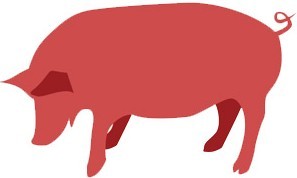With the outbreak of World War II following the German invasion of Poland, the formally neutral Soviet Union invaded and annexed the territories of several states in Eastern Europe. In June 1941, Germany broke the non-aggression pact and launched a large-scale invasion of the Soviet Union. Despite initial German successes, the Soviets gained the upper hand over Axis forces at the Battle of Stalingrad and eventually captured Berlin. The combined Soviet civilian and military casualty count—estimated to be around 27 million people—accounted for the majority of losses of Allied forces. In the aftermath of World War II, the territory taken by the Red Army formed various Soviet satellite states.

- However, the influence of the world economy on the USSR was limited by fixed domestic prices and a state monopoly on foreign trade.
- It has subsequently produced a National Biodiversity Strategy and Action Plan, which was received by the convention on 31 July 1998.
- The stated purpose was to prevent the return of capitalist exploitation, and that the principles of democratic centralism would be the most effective in representing the people’s will in a practical manner.
- This event caused Khrushchev much embarrassment and loss of prestige, resulting in his removal from power in 1964.
- The earliest known Lower Egyptian site, Merimda, predates the Badarian by about seven hundred years.
- The Soviet Union also did not participate, but the Games were the first to be attended by communist countries, including Hungary, Yugoslavia, and Poland.
The Olympic Games were canceled during World War I and World War II. The 1940 Summer Games, scheduled to take place in Tokyo, were postponed due to war and moved to Helsinki, Finland, where they were later canceled altogether. Owens became the first American to win four gold medals in track and field. He became the first American of any race to win four gold medals in track and field in a single Olympics, an achievement that stood unaccompanied until Carl Lewis matched him in 1984. The Berlin Games became a powerful propaganda tool for Nazi Germany as it tried to make its brutal treatment of Jews, political opponents and others seem benign. The Nazi Olympics also helped Germany cultivate an atmosphere of appeasement from the rest of the world as Hitler prepared for conquest and war.
Ukraine: Why So Many African And Indian Students Were In The Country
The Soviet Union also participated in the war in Afghanistan between 1979 and 1989. It summer events 2016 was instrumental in the Great Purge, but was brought under strict party control after Stalin’s death. The Marxist-Leninist leadership of the Soviet Union intensely debated foreign policy issues and changed directions several times. Even after Stalin assumed dictatorial control in the late 1920s, there were debates, and he frequently changed positions. Estonia, Latvia, and Lithuania consider themselves as revivals of the three independent countries that existed prior to their occupation and annexation by the Soviet Union in 1940.
Early Modern Period: Ottoman Egypt 1517
In an attempt to avoid a third short-lived leader, in 1985, the Soviets turned to the next generation and selected Mikhail Gorbachev. He made significant changes in the economy and party leadership, called perestroika. His policy of glasnost freed public access to information after decades of heavy government censorship. In 1988, the USSR abandoned its war in Afghanistan and began to withdraw its forces. In the following year, Gorbachev refused to interfere in the internal affairs of the Soviet satellite states, which paved the way for the Revolutions of 1989.
The war became a topic of great importance in cinema, literature, history lessons at school, the mass media, and the arts. As a result of the massive losses suffered by the military and civilians during the conflict, Victory Day celebrated on 9 May is still one of the most important and emotional dates in Russia. The Soviet Union placed great emphasis on science and technology within its economy, however, the most remarkable Soviet successes in technology, such as producing the world’s first space satellite, typically were the responsibility of the military.
Ties between Egypt and other non-Arab Middle Eastern nations, including Iran and Turkey, have often been strained. Tensions with Iran are mostly due to Egypt’s peace treaty with Israel and Iran’s rivalry with traditional Egyptian allies in the Gulf. Turkey’s recent support for the now-banned Muslim Brotherhood in Egypt and its alleged involvement in Libya also made both countries bitter regional rivals. Egypt is speculated by Israel to be the second country in the region with a spy satellite, EgyptSat 1 in addition to EgyptSat 2 launched on 16 April 2014.
Who Won 1936 Olympics?
At the same time, the Soviet republics started legal moves towards potentially declaring sovereignty over their territories, citing the freedom to secede in Article 72 of the USSR constitution. On 7 April 1990, a law was passed allowing a republic to secede if more than two-thirds of its residents voted for it in a referendum. Many held their first free elections in the Soviet era for their own national legislatures in 1990. Many of these legislatures proceeded to produce legislation contradicting the Union laws in what was known as the « War of Laws ». In 1989, the Russian SFSR convened a newly elected Congress of People’s Deputies.



